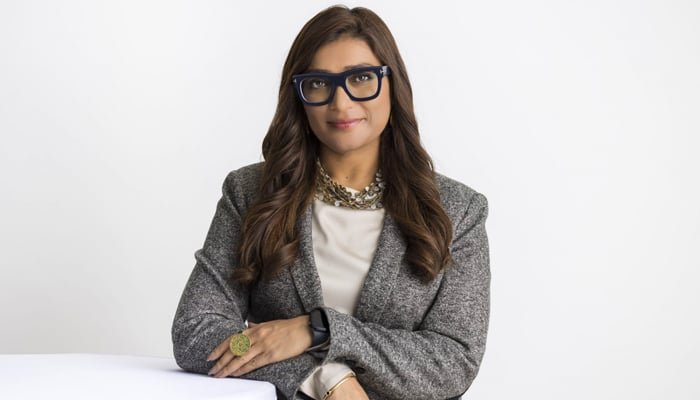Nighat Dad joins UN chief's AI advisory board
DRF founder terms including perspectives of countries like Pakistan as part of deliberations on AI "good"
Digital Rights Foundation (DRF) Executive Director Nighat Dad was appointed to the high-level advisory board on Artificial Intelligence (AI) by the United Nations Secretary-General António Guterres on Friday.
This distinguished 39-member board, consisting of accomplished experts from across the globe, will centre its efforts on addressing AI's global governance, with interim recommendations expected to be released by the end of the year.
The focus of this board will remain on three key areas — international AI governance, generative AI, and the shared comprehension of the risks and challenges associated with the deployment of technologies related to AI.
Additionally, the board will explore opportunities and strategies for harnessing AI to further accelerate the achievement of the UN's Sustainable Development Goals (SDGs).
The development regarding Dad's inclusion in the board was announced by the UN's Pakistan chapter on X.
"Congratulations to @NighatDad, Executive Director of @DigitalRightsPK, who is now a member of the High-level Advisory Body on Artificial Intelligence (AI). Launched by UNSG @AntonioGuterres, it will support the international community’s efforts to govern artificial intelligence."
Commenting on taking up this new, crucial membership, the DRF executive director said: "I am honoured to serve on this high-level advisory board focused on the emerging field of Artificial Intelligence (AI), which bring opportunities yet presents significant challenges. I'm excited to bring a global majority world perspective to our discussions and emphasise the importance of recognising the potential human rights issues that may affect marginalised communities worldwide as we embrace new technologies."
Dad added that her goal is to address real-time threats and vulnerabilities faced by these communities and shed light on emerging problems through an intersectional lens while considering global AI governance.
Speaking with Thenews.com.pk, Dad highlighted how her role in the body is as a global expert, specifically bringing a human rights perspective into the debate and deliberation while they look into better governance system of AI globally.
"But I think it is good that perspective of countries like Pakistan and global majority will be part of these deliberations, so the conversation won't be dominated by only the Global North or white people, but also by ourselves as well, bringing realities of our own region and countries," she said.
The DRF founder elaborated that if the UN is looking into this issue, then this body will hopefully look at it equally, bringing everyone to the table, keeping in mind all the challenges, opportunities, innovations, and governance models from around the world, including our own region.
In his announcement earlier today, Guterres said: "For developing economies, AI offers the possibility of leapfrogging outdated technologies and bringing services directly to people who need them most."
He added that the transformative potential of AI for good is difficult even to grasp.
"And we are in urgent need of this enabler and accelerator. Many countries are already reeling from the impact of the climate crisis. The 2030 Agenda — our global blueprint for peace and prosperity on a healthy planet — is in deep trouble," he highlighted.
The UNSG said AI could help to turn that around and can supercharge climate action as well as efforts to achieve the 17 Sustainable Development Goals by 2030.
"But all this depends on AI technologies being harnessed responsibly, and made accessible to everyone — including the developing countries that need them most," he stated.
Guterres hoped that the high-level advisory board would be gender-balanced, geographically diverse, and span generations.
"Members have deep experience across government, business, the technology community, civil society and academia. They bring a broad range of perspectives to the task," the UN chief said in his announcement.
-
Security forces gun down 30 terrorists in multiple IBOs in KP: ISPR
-
MQM-P calls for new province in Sindh
-
US report validates Pakistan military edge over India: PM
-
Banned TTP poses serious threat to Pakistan security: UNSC panel
-
CM Afridi clarifies remarks on by-poll after ECP requests army deployment
-
Dubai sees 3.2m Pakistani passengers in 2025 as airport sets new milestone
-
Security forces kill 23 Indian proxy terrorists in KP's Kurram
-
Pakistan to construct island to boost oil exploration: report












